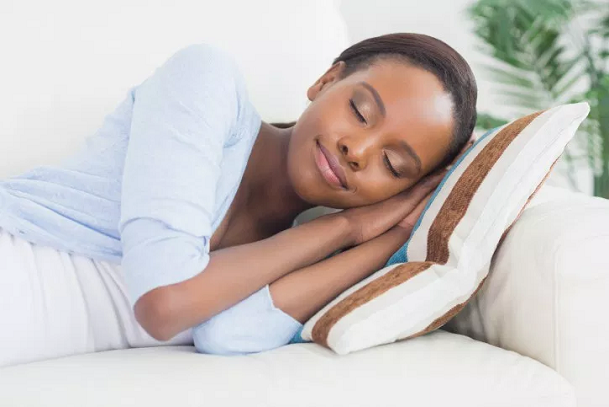 Wash your hands regularly and wear a face mask.
Learn more
Wash your hands regularly and wear a face mask.
Learn more

It is 2.am in the morning; you are in bed with your eyes still wide open. You are tired but sleep has somehow managed to elude you. As the clock gently ticks down, you know it will be daybreak soon and you’d have to get up to start another stressful day.
While you retain the hope that you will somehow find some few minutes of sleep, you know deep down that the monster called “insomnia” does not give up easily. It's been three weeks now and this unhealthy scenario repeats itself almost every two days.
When it comes to feeling tired of feeling so tired and drained, you are certainly not alone. About 47% of adults in Nigeria are reported to have insomnia symptoms every year since 2008.
So if your night time is becoming even more stressful than your day job, we have compiled tips to help you regain control.
What You Didn’t Know About Insomnia
Insomnia is generally the inability to initiate sleep, remain asleep, or get the right amount of sleep that leaves you feeling rested when you wake up.
Insomnia Signs…
If you are not sure whether your sleepless nights are an indication that you have insomnia, then the symptoms highlighted below should provide the clarification you need:
Chronic insomnia can last for months or even years, while it’s acute form may only last for some few weeks.
It is also important to note that sleeplessness can be a symptom of other conditions, such as accumulated stress, depression, chronic pain. This is why sleeplessness is fast becoming a common condition among Nigerians especially the adult segment of the population.
Insomnia could also be caused by a combination of factors, including psychological and medical issues, relationship mishaps, poor habits (bad bedtime routines, frequently watching TV before bed, hyperactivity, etc.).
Action Plan
This should include the amount of sleep that you get and when you actually sleep. Keeping track of your fatigue levels during the day can help you determine the activity that drains you the most and stop you from sleeping well at night. This information will also be useful when you decide to consult your doctor. Google Play and Apple store have a wealth of applications that can help you track your daily activities.
In order to do this, you need to engage in activities that will get you exhausted before your sleep time. Stick to this sleep and wake up time even on weekends.
If you have been looking for a reason to quit smoking, now you have one. Smokers are at a higher risk of developing insomnia probably because their bodies go into nicotine withdrawal at night time.
If you have got the time, you can chip in some early exercise routines. Studies have shown that insomniacs tend to get more quality sleep when they engage in aerobic activities. You can also try some exercises a few hours before your bed-time so that your body has sufficient time to wind down before you eventually go to bed.
Coffee is not a common beverage in these parts of the world but if do feel tempted to sip a little coffee when you are tired, go for water instead. The caffeine contained in coffee will only keep you awake against your will and eventually form a vicious cycle.
If you must take any food item that contains any form of caffeine, ensure you do so during the early hours of the day.
Napping the right way can be the difference between a restful night and sleepless night. All you need to feel rested and refreshed may be a 20 to 30 minutes nap time. But ensure that you do not sleep beyond 3 pm or 4 pm as this will make it harder for you to find sleep at night.
A healthy diet may just be what you are missing. Eat foods that are high in magnesium and vitamin B complex such as vegetables, cashews, almonds, spinach, nuts, beans, etc.
While alcohol may have some calming effects on the body, it is capable of disrupting your sleep cycles at night. If you must take it, make sure you do so long before your bedtime.
The bed is meant for sleep and sex. Do not turn it into another workstation by littering your work papers or documents. Ensure that it is well laid and comfortable enough for your body to sleep in. This means also that you must choose the very good mattress.
When you have tried everything and your condition doesn’t improve, your doctor may just be your only saving grace. Your doctor will help you determine whether you have other sleep disorders and suggest the best treatment for them.